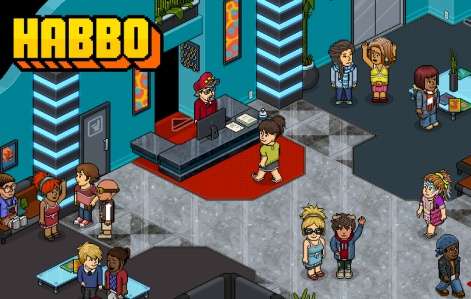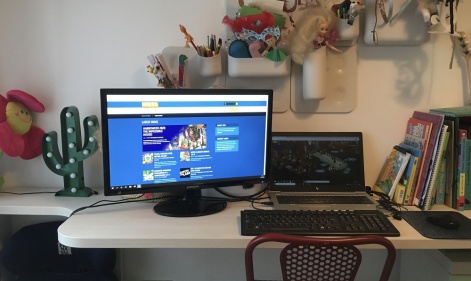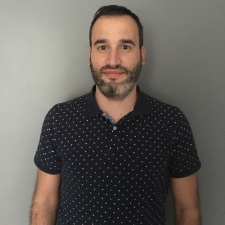The games industry plays host to a colourful cast of diverse individuals, from artists and coders to narrative designers and studio heads.
The skills to pull off these roles, however, are complex and differing, with each position requiring mastery in its field – especially in these complex times we are all living through at the minute.
To highlight some of the brilliant work that goes on behind the scenes as well as how employees around the world are adapting to the life of remote work, PocketGamer.biz is reaching out to the individuals who make up the games industry in our Jobs in Games: Remote Working series.
This week we spoke with Sulake product owner of Habbo Jorge García.
PocketGamer.biz: Can you tell us about your current role and what it entails?
Jorge Garcia: I am the product owner of Habbo, which in practice means I run the whole Habbo business such as sales, profit, vision, and strategy. In addition to that, there are a number of people directly reporting to me from a wide variety of departments, including engagement, social media, marketing, UI, and design.
To enrich your own vision, you’ve got to know what others think about and what they have to say about it.Jorge García
How did you first get into games and how did you progress into this role?
We’d have to go back to 2005 when I joined Sulake and became Habbo’s web content manager for both Spain and LATAM. At that time, they were looking for someone capable of running creative in-game campaigns, which basically meant engaging users with excellent writing skills.
Over the years, my roles within the company have gone from web content manager to global partnership manager, then to a global product sales manager, and finally, to the current role I have.
What did you study (if anything) to get your role? What courses would you advise for aspiring professionals in the area?
I have a degree in Media Studies (specialising in journalism) and I worked for several newspapers and magazines before I joined Sulake. This sort of experience was very helpful for landing my first role at Sulake, but getting a comprehensive understanding of all kinds of aspects related to the gaming industry definitely required doing a lot more courses and learning afterwards.
I think one of the most supportive courses I did was an MBA I completed several years ago. It was mainly focused on online marketing and sales, but other fields such as finance, product development, or strategy were also included.
Do you think there are any misconceptions, public or professional, surrounding your area of expertise?
Being an avid gamer is helpful, but you don’t need to be an "A-Gamer" to contribute good ideas while working in this industry. People from a very wide variety of sectors are needed.
What advice do you have for someone looking for a job in this profession?
Be creative and go for ‘crazy’ ideas. Test and try, plus always be open-minded and always ask for feedback. To enrich your own vision, you’ve got to know what others think about and what they have to say about it.

How has the shift from office to remote working impacted your role, if at all?
It definitely brought some changes, but probably not as many as it did for other types of companies. I was already working remotely from time to time before Covid-19 and most of my work happens in front of a computer screen, meaning I could potentially have worked from wherever I wanted to anyway. Saying that it’s also true that working remotely occasionally and all the time are very different things.
What does your typical day look like when working remotely?
There’s no standard or typical day with my work, whether working remotely or from the office. In fact, one of the things I appreciate the most about my work is that no two days are the same. This is because I might have no meetings or up to four in a single day; it could be that I need to come up with some new extra sales ideas for the next campaign or explain how to fix a potential bug taking place.
Make sure to take some time for rest or being with your family, doing exercise, cooking healthy food, etcetera.Jorge García
I might be planning the forecast for the next quarter or setting prices for new in-game products. I might even be negotiating a marketing deal with a third-party company or enabling a special offer for a selection of targeted users. As said, no two days are the same.
What do you think are the biggest advantages and disadvantages of remote working?
I’m the type of professional who thinks it doesn’t matter where you’re working as long as you’re working hard and doing your best. Saying that for some people it’s easier working remotely because they can be completely focused and concentrated on what they’re, doing.
Working from home allows them to avoid additional distractions. For others, it’s possible they might lose the feeling of belonging to a team while not working from an office, as they are more in need of face-to-face interactions than others.
Is there anything you wish you had known before moving to remote working?
Not really about working remotely as such. But working remotely while in lockdown, that was one of the biggest lessons I had to learn recently - a tough one actually. How does one deal with doing everything within the same space all the time? Working, cooking, cleaning, acting as my little daughter’s teacher, doing exercise, sleeping, etcetera. It required a lot of patience and self-concentration.
Do you have any advice for others who are struggling to adjust to remote work?
Every new situation requires time to adjust to. I would advise people to appreciate the advantages of working remotely, professional and non-professional (such as, for example, not having to commute to work) and try to reduce any inconveniences.

Try to keep in close contact with your colleagues, for example by organising online events for the team to play something together and keep that feeling of being part of a team alive.
In addition to that, remember not everything is about working. Make sure to take some time for rest or being with your family, doing exercise, cooking healthy food, etcetera.
After the pandemic ends and if you were given the choice, would you prefer to continue working remotely or go back to working in an office?
A mix of both would be the most suitable option for me. Thus, I would prefer to work remotely for three days while going to the office for a couple of days per week, therefore getting the best of both worlds.






















